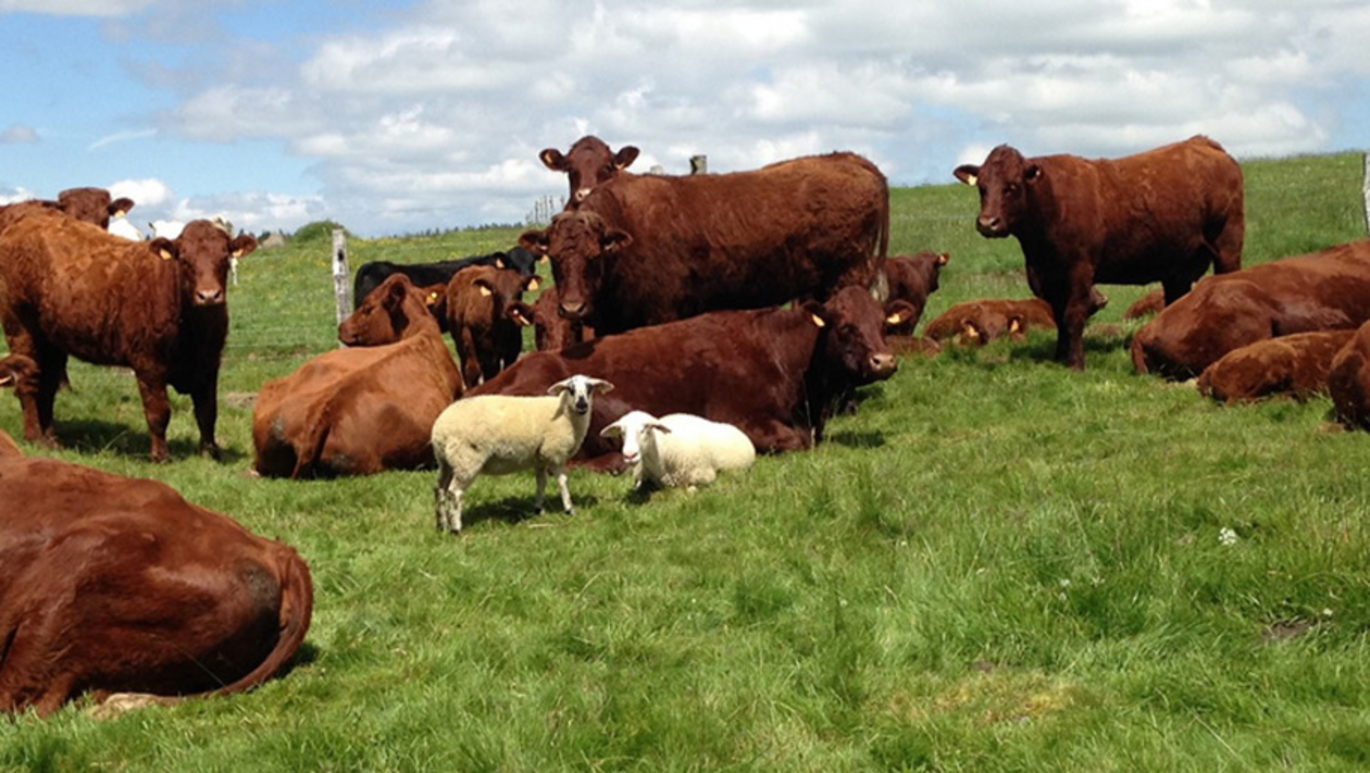Farmers’ management practices determine sustainability patterns of French organic multi-species livestock farms.
A short description of the main content and main message of the article. Based on 31 surveys, we tried to relate sustainability patterns of French organic multi-species livestock farms to farm structures (types of production, area, livestock units, etc.) and farmers’ practices (rotating crops and pastures, co-grazing, etc.).

Diversification of farming systems has been proposed to address the sustainability issues of modern industrial agriculture. Keeping two or more animal species or breeds (e.g. dairy cattle and beef cattle) simultaneously on the same farm is a diversification option that has received little attention to date. Moreover, most studies of multi-species livestock farming are partial, focus on specific dimensions of farm sustainability and address lower organizational levels (i.e. within the farm). Thus, understanding of the patterns of farm sustainability allowed by multi-species livestock farming and of the factors determining these patterns is needed.
We surveyed 31 organic multi-species livestock farms in France to collect data on farm structures, farmers’ management practices and farm sustainability performances. The sample included farms combining cattle and small ruminants, cattle and monogastrics (pigs and/or poultry) and small ruminants and monogastrics. We identified a diversity of sustainability patterns revealing trade-offs already known on specialized farms. Profitability tended to be related to labour-intensive farms that did not have the best environmental profiles and vice versa.
Overall, sustainability patterns of French organic multi-species livestock farms were not explained by farm structures (types of production, area, livestock units, etc.) but by farmers’ practices (rotating crops and pastures, co-grazing, etc.). For example, we found that 1) self-sufficiency for animal feeding that prevents farms from the volatility of feed input prices was positively related to the percentage of cropland where farmers practices grazing of crop stubbles and cover crops; 2) management complexity of the farms increased significantly with the number of food products sold that incorporated raw products from at least two enterprises within the farm.
In the next steps of the MIX-ENABLE projects, we will aim to unravel the complex linkages between farm sustainability and farmers’ management practices to characterize the conditions for the sustainability of organic multi-species livestock farms.
